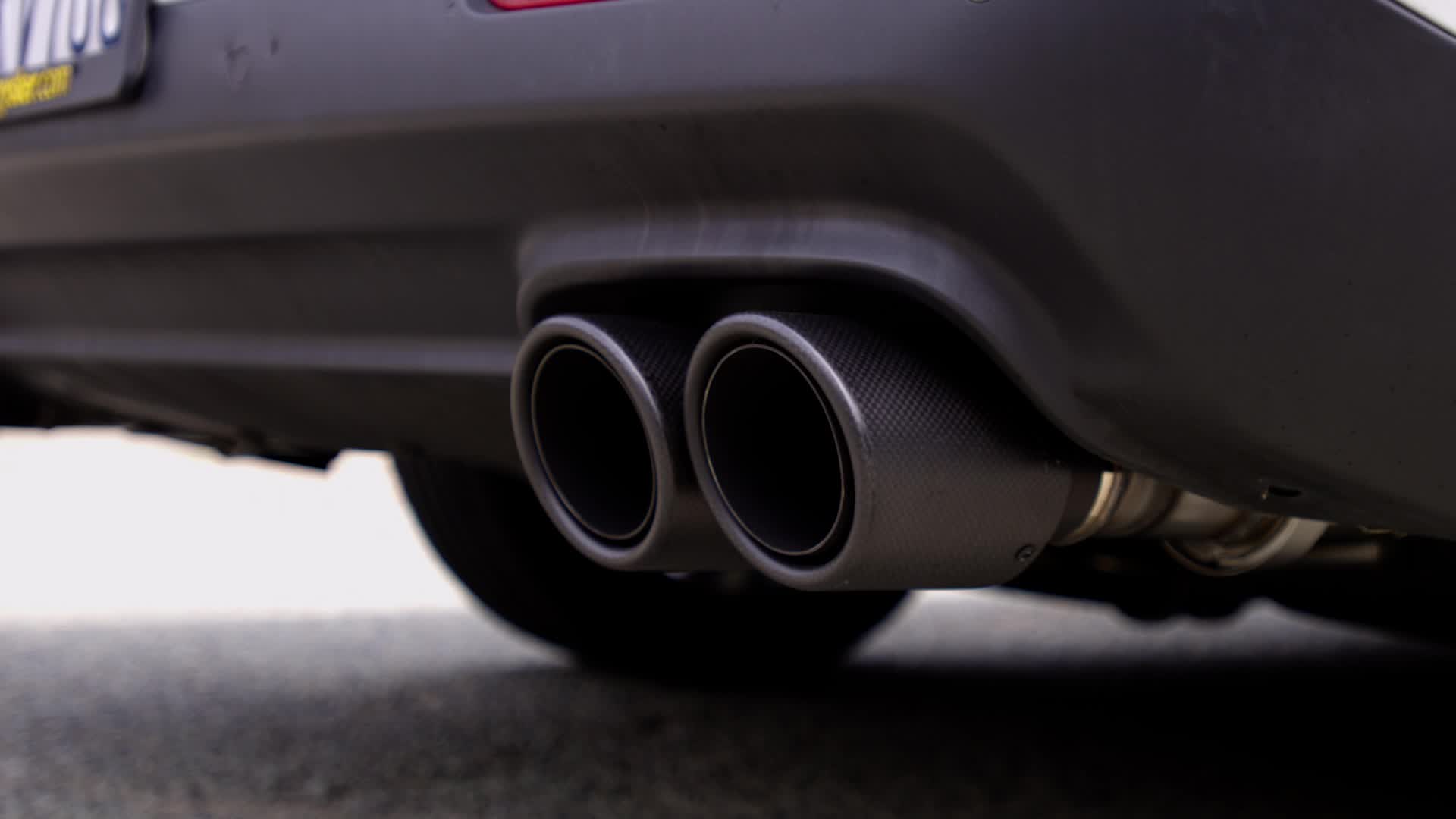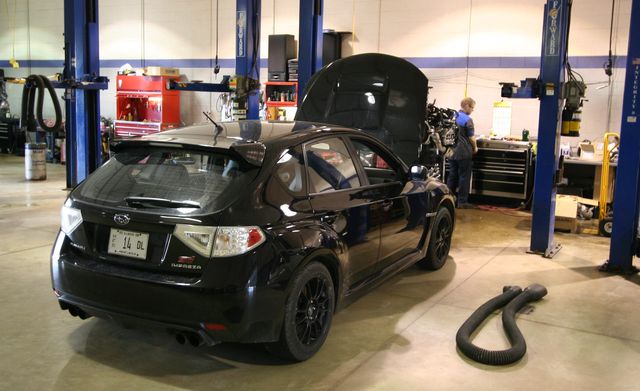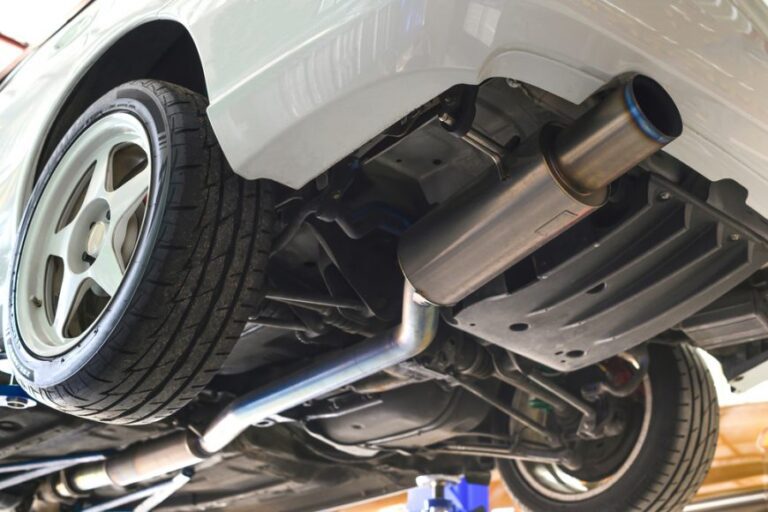Exhaust Issues Symptoms: Unveiling Dangerous Signs!
Exhaust issues symptoms include loud noise, decrease in power, and strong smell of gas. These symptoms can indicate problems with the exhaust system, such as leaks, clogs, or damaged components.
A malfunctioning exhaust system not only affects the performance of your vehicle but also poses health risks due to the emission of harmful gases. It is important to address these symptoms promptly to avoid further damage and ensure the safety of yourself and others on the road.
By understanding the signs of exhaust issues, you can take the necessary steps to diagnose and fix the problem, or seek professional help if needed.
Common Symptoms Of Exhaust Issues
Unusual Engine Noise: One of the common symptoms of exhaust issues is hearing unusual noises coming from the engine. These noises can range from loud rumbling sounds to hissing or sputtering sounds. It is important to pay attention to any changes in engine noise, as it could indicate a problem with the exhaust system.
Decreased Fuel Efficiency: Another symptom of exhaust issues is a decrease in fuel efficiency. If you notice that you are having to fill up your gas tank more frequently than usual, it could be due to a problem with your exhaust system. A well-functioning exhaust system helps to optimize fuel consumption, so any decrease in efficiency may be a sign of a problem.
Smell of Exhaust Fumes: A strong smell of exhaust fumes inside or outside the vehicle can be a clear indication of exhaust issues. If you notice a strong, unusual odor, it is important to have your exhaust system inspected as soon as possible to prevent any potential health hazards.
Increased Exhaust Smoke: An increase in exhaust smoke can also be a symptom of exhaust issues. If you notice excessive smoke coming from your tailpipe, it could be a sign of a problem with your exhaust system. Different colors of smoke, such as black, blue, or white, may indicate different issues and should be addressed promptly.
Dangers Of Ignoring Exhaust Issues
htmlInhalation of exhaust fumes can pose significant health risks. Exhaust fumes contain harmful gases such as carbon monoxide and nitrogen oxides, which can lead to headaches, dizziness, nausea, vomiting, and in severe cases, even death. prolonged exposure to these gases can also cause long-term effects on the respiratory system and increase the risk of cardiovascular diseases.
Ignoring exhaust issues can also lead to potential fire hazards. Excessive backpressure in the exhaust system can cause overheating, which can result in catalytic converter damage and potentially lead to a vehicle fire. Leaking exhaust gas can also come into contact with flammable materials within the engine compartment, increasing the risk of a fire outbreak.
Furthermore, ignoring exhaust issues can have damaging effects on engine components. A malfunctioning or blocked exhaust system can cause increased pressure on the engine, leading to a reduction in fuel efficiency and power. Continued neglect can result in the failure of crucial components such as the oxygen sensors, muffler, and catalytic converter, requiring expensive repairs or replacements.
Warning Signs Of A Leaking Exhaust System
When it comes to exhaust issues, it is important to be aware of the warning signs of a leaking exhaust system. One common symptom of a leaking exhaust system is rust or holes in the exhaust pipes. Rust or holes can develop over time due to exposure to moisture and corrosive materials, leading to the potential for exhaust leaks. Another warning sign is a loud roaring engine sound. This can indicate a problem with the exhaust system, such as a leak or a damaged muffler. Additionally, vibrations from the exhaust system can also be a potential symptom of exhaust issues. If you notice any of these warning signs, it is important to have your exhaust system inspected and repaired by a qualified mechanic to prevent further damage and ensure your vehicle is safe to drive.

Credit: www.autozone.com
Harmful Effects Of Exhaust Backpressure
Exhaust backpressure can have harmful effects on the performance and health of your vehicle. One common symptom of excessive backpressure is reduced engine power and performance. When the exhaust system is clogged or restricted, the engine struggles to expel exhaust gases efficiently. This results in a decrease in horsepower, acceleration, and overall performance. It may also lead to increased fuel consumption since the engine has to work harder to achieve the desired power output.
Another consequence of exhaust backpressure is the overheating of engine components. When the exhaust gases are unable to flow smoothly through the system, heat can build up in the engine. This can cause damage to various components, such as the exhaust manifold, cylinder head, and valves. Overheating can also lead to increased wear and tear on the engine, reducing its overall lifespan.
To prevent these issues, regular maintenance and inspection of the exhaust system are essential. Ensure that the exhaust pipes, catalytic converter, and muffler are in good condition and free from any blockages. Addressing any signs of reduced engine power or overheating promptly can help maintain the performance and longevity of your vehicle.
Identifying Exhaust System Blockages
Identifying exhaust system blockages is crucial in maintaining the performance and functionality of your vehicle. One of the symptoms of an exhaust system blockage is decreased acceleration and power. If your vehicle is struggling to pick up speed or lacking power, it could be a sign of a blocked exhaust system. Additionally, if you are experiencing exhaust smells inside the vehicle, it is highly likely that there is a blockage in the system. A clogged exhaust system can cause the exhaust gases to enter the vehicle’s cabin, resulting in foul odors and potential health hazards. Moreover, engine misfires and stalling can be another indication of an exhaust blockage. When the exhaust system is clogged, it can disrupt the engine’s air-fuel mixture, leading to engine misfires or even stalling. Therefore, it is essential to be vigilant for these symptoms and address any potential blockages promptly to ensure optimal vehicle performance.
Essential Maintenance For Exhaust Systems
Regular inspection and repair is essential for maintaining the health of your vehicle’s exhaust system. By keeping an eye out for potential issues, you can catch them early on and avoid more costly repairs down the line. Some common symptoms of exhaust problems include excessive noise, decreased power and acceleration, and a strong smell of gas in the cabin or near the tailpipe. If you notice any of these signs, it’s important to have your exhaust system checked by a professional. Faulty components, such as a damaged muffler or catalytic converter, should be promptly replaced to prevent further damage to the system. Additionally, regular cleaning and maintenance of the exhaust system can help prolong its lifespan and ensure optimal performance. Trusting a professional for this task is recommended as they have the expertise and equipment to properly clean and maintain your exhaust system.
Frequently Asked Questions Of Exhaust Issues Symptoms
How Do You Know If You Have An Exhaust Problem?
Common indicators of an exhaust problem include loud noises, decreased fuel efficiency, a strong smell of exhaust fumes, and visible smoke from the tailpipe. Additionally, a check engine light may illuminate on the dashboard.
How Do I Know If My Exhaust Needs Replacing?
Inspect your exhaust for any signs of damage, such as rust, cracks, or leaks. Listen for abnormal noises, like louder or rougher engine sounds. A decrease in fuel efficiency or an increase in emissions can also indicate a faulty exhaust.
If you notice any of these issues, it may be time to replace your exhaust.
What Happens When The Exhaust System Goes Bad?
When the exhaust system goes bad, it can lead to reduced engine performance, increased emissions, and loud noises. It may also cause a decrease in fuel efficiency and the appearance of smoke from the tailpipe. It’s important to get it fixed promptly to avoid further damage.
Is It Safe To Drive With Exhaust Issues?
Driving with exhaust issues is not safe as it can cause harmful emissions inside the vehicle. It can also lead to poor engine performance, increased fuel consumption, and potential fire hazards. Get your exhaust system inspected and repaired by a professional as soon as possible.
Conclusion
It’s vital to be aware of the symptoms of exhaust issues in your vehicle. By paying attention to signs like loud noises, decreased fuel efficiency, and unusual odors, you can address potential problems early on. Regular maintenance and timely repairs will help ensure your vehicle’s performance and longevity.
Don’t ignore these warning signs and take prompt action to keep your exhaust system in optimal condition.







